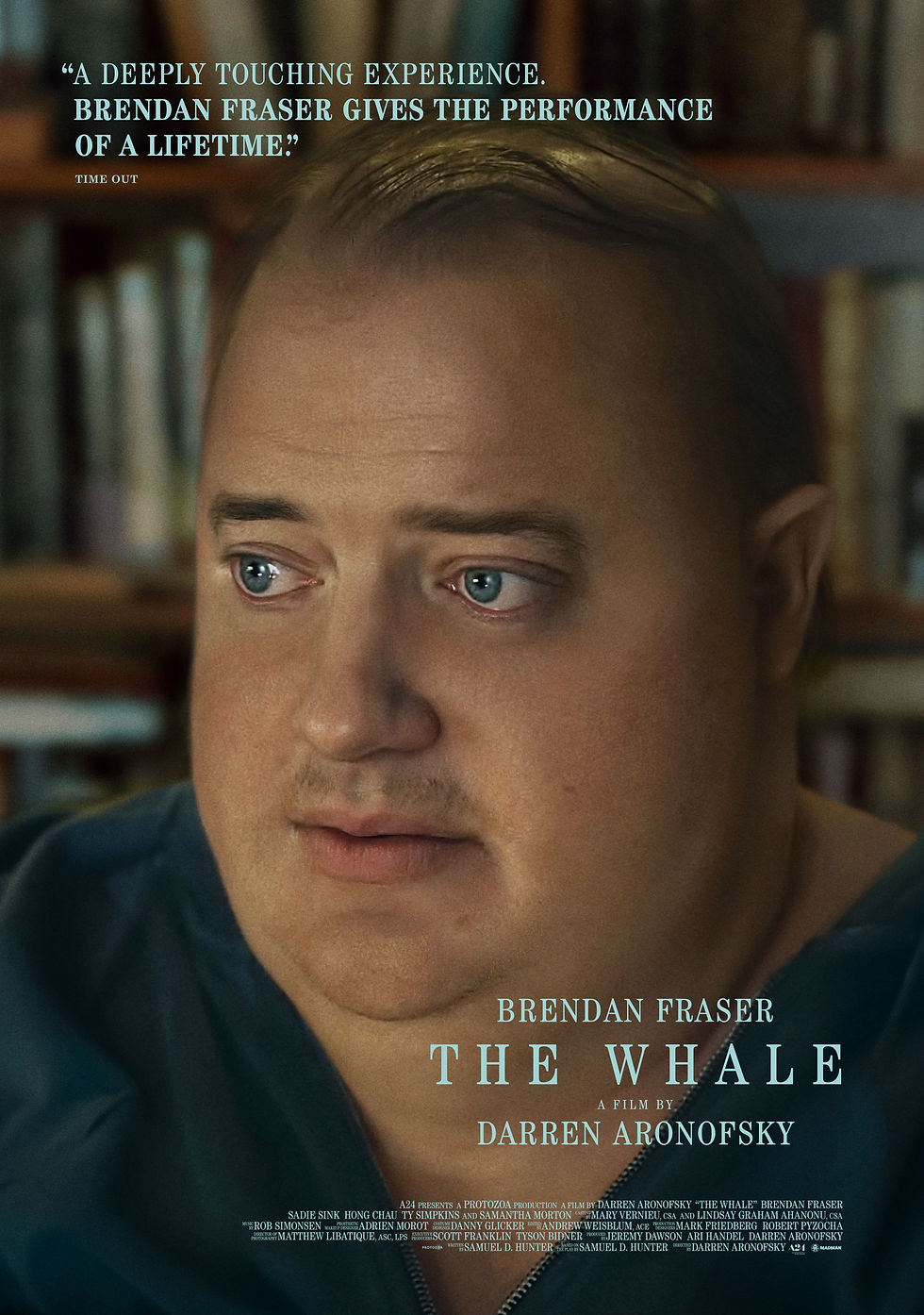The Whale review
- Timothy Gerard Palugod

- Feb 26, 2023
- 2 min read
Updated: Feb 27, 2023

Darren Aronofsky’s The Whale, adapted from Samuel Hunter’s 2012 stageplay of the same name, emulates a feeling of dread and isolation as the story follows Charlie, played by Brendan Fraser, an English professor who teaches writing courses online, camera off, making an excuse that it is broken when he actually does not want to be seen in his current state of mind and body.
Charlie is obese and, after his friend Liz checks up on him, is suffering from congestive heart failure. Throughout the film, he eats food after every painful scene, a bucket of chicken or pizza, to relieve him of stress or to accelerate his worsening condition. Charlie refuses to go to the hospital, he wants to end his pain.
Each laboured breathing felt as if my own. The plot points flew over my head as I focused on Brendan Fraser’s acting, the final wish to do something good in his final days, his relationship with Liz and their arguing back and forth, the way he breathes, the way he walks, how other characters perceive him, do they find him disgusting, do they genuinely care for this flawed dying man, is genuine care the point of the film, and if not, how can Charlie do something if he cannot even walk properly in the first place?
I did not feel disgusted at all when I watched the film. I guess if I watched every movie featuring an obese main character on the brink of death I would have felt the same, but this is different, because it is an overweight gay person, aging alone, living a sorry life, always saying sorry, not living a healthy life after a loved one’s passing, waiting for death after a loved one’s passing; it is a story that feels too familiar or too close for a lot of people, and all that’s left to feel is sorry, and how powerless or mentally fatigued we, or people close to us, can be, in the face of something systemic or abrupt.
There was no better way to narrate the story: the audience is informed early on of Charlie’s condition and his relationship with his daughter, what they know about each other, and how the film ends. There is no excuse for this flawed character: Charlie had a family, a wife and a daughter, he had a responsibility, and they needed him but he was gone. The film was not antagonistic, and it understands that while there are consequences to misdeeds, the suffering of women and queer people intersect, and it is painful how it continues with each passing generation, with almost no end in sight.
4/5 stars
Comments